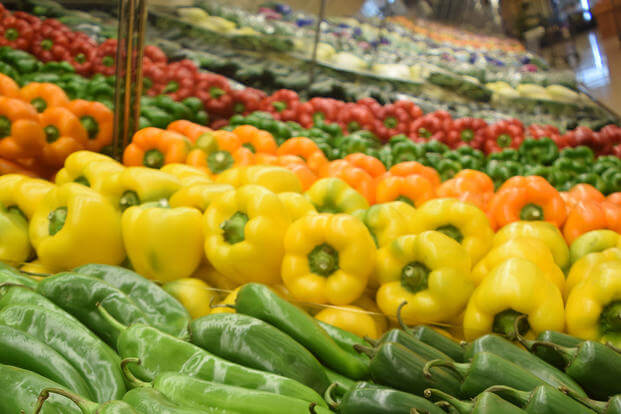It's not a secret to military families stationed in Asia: produce in commissaries there is really, really expensive, and has only gotten worse in the last few years since the system brought in a new contract designed to save the agency money.
Now, a new report says the same thing. Yes, the new contract is saving taxpayers somewhere around $40 million. But it's also caused prices for items to go way up, sometimes costing more than triple the price of the same items on the economy in Japan and Korea, the report states.
"Specifically, DeCA personnel did not verify produce prices for 35 high‐volume core items on the surveys submitted by the contractors," the report states.
For example, if you were buying Bok Choy in Japan last June, it was going to cost you $4.20 per lbs on base, and an average of $.89 per lbs off, according to the report. That's an almost 373 percent price difference. Oh, and it’s native to that region, so getting it there shouldn’t be a costly exercise.
I've been on the OCONUS fruit and veggies prices beat for a long time, so here's a little background: A few years ago the Defense Commissary Agency decided they could save a few bucks -- about $48 million a year -- by not footing the bill to ship fresh fruits and vegetables to stores in Asia. Instead they decided to pass that cost on to the contractor and, therefore, the consumer.
They put in place two contracts -- one to provide those items in Guam, one to provide them in Japan and Korea. The contracts require that a list of "high value, core-items," -- things that Americans except to see in their grocery stores that aren't always readily available overseas, like strawberries and broccoli -- be priced at 30 percent less than what they would cost off base. At the time customers and lawmakers worried that even 30 percent less than the off base price would be exorbitantly high. A lot of folks complained, an IG report was done on the problem in Guam, a lawmaker wrote letters of concern, and a National Defense Authorization Act ordered the IG to keep an eye on the situation.
And what did the latest of those IG inspections find? Not only are prices higher than what they were before, but they are nowhere near the 30 percent savings required. In many cases, the report found, items cost far more on base than they do off.
Auditors found that no one was minding the store, as it were. Commissary officials weren't checking to make sure the prices contractors claimed were found off base were actually there, or that the prices that they were setting matched what they were supposed to be doing.
DeCA's director agreed with the IG's price-related findings, according to the report.
When the contract was first changed, commissary officials noted that they expected some prices to go up and others to go down.
And the IG report does show that, compared to markets outside the gate, some vegetables are substantially cheaper. Celery, cilantro and green leaf lettuce all showed a savings of over 60 percent, while lemons, limes and broccoli also met the at least 30 percent savings threshold.
But that was it from among the 35 "high value" items. Everything else didn't touch the savings requirement or, in the case of 15 of the items, actually cost more.










